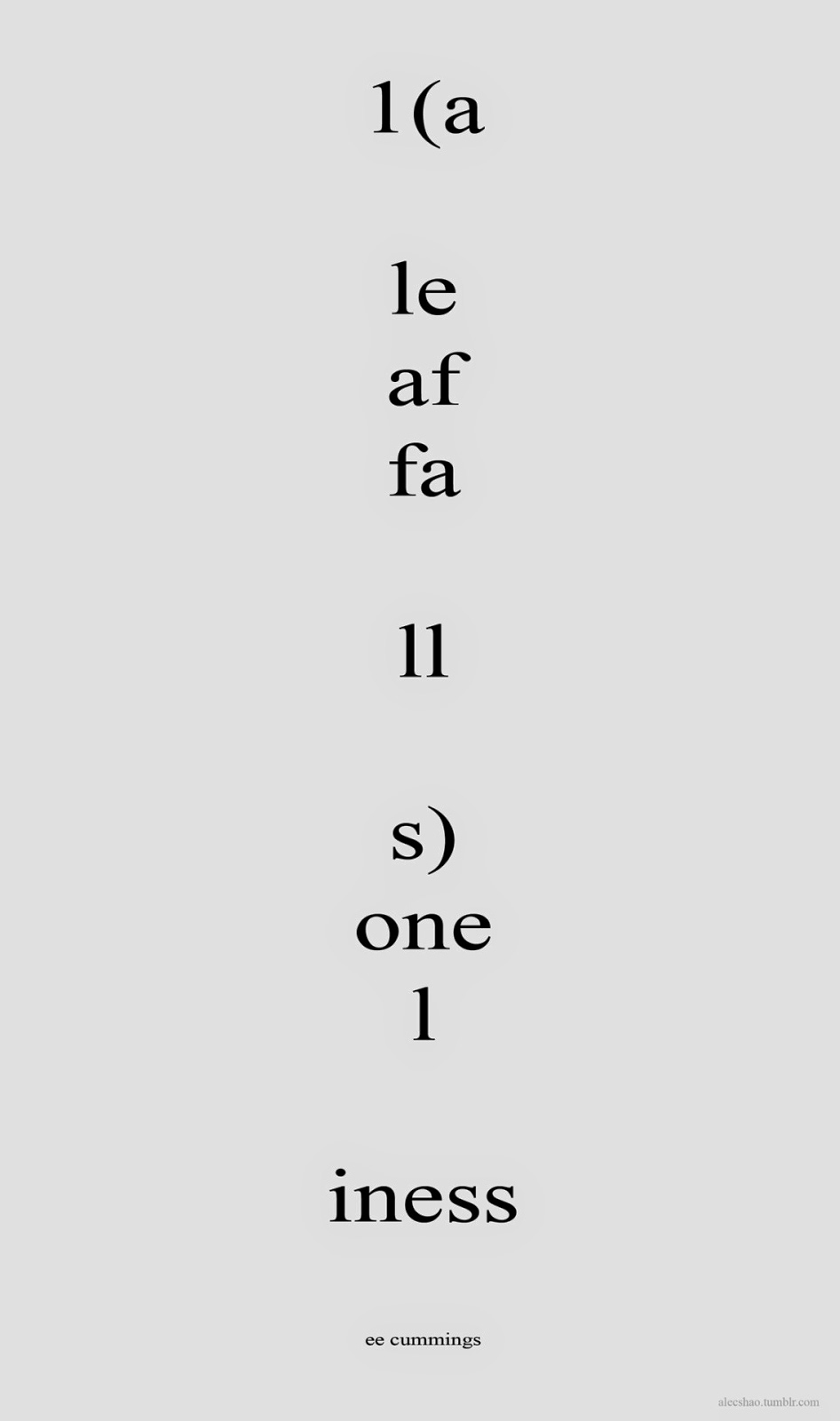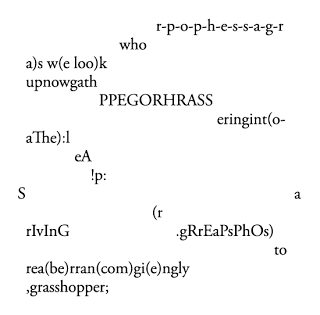Original Image/Original Text

Borrowed Image/Borrowed Text

Orignal Image/Borrowed Text
 Clifford allows us to watch the poem unfold as if a leaf has literally fallen from a tree and has created the poem. We are given the opportunity to see this famous poem come to life. After we see the whole poem fall from the branch, the poem also disappears through itself and we return the beginning tree that holds the certain poems that Clifford had chosen for the piece. When one reads this poem for the first time, it seems confusing. I first ran into the poem my freshman year of college when I was still a young and was not aware of the true beauty of this poem.
Clifford allows us to watch the poem unfold as if a leaf has literally fallen from a tree and has created the poem. We are given the opportunity to see this famous poem come to life. After we see the whole poem fall from the branch, the poem also disappears through itself and we return the beginning tree that holds the certain poems that Clifford had chosen for the piece. When one reads this poem for the first time, it seems confusing. I first ran into the poem my freshman year of college when I was still a young and was not aware of the true beauty of this poem. Just as Clifford creates the image of a leaf falling and creating the poem, she has taken the letters and had them jump around until they have formed the poem. It even helps the reader to understand what the poem actually says. My best interoperation of the poem is as follows. -Who as we look up now gathering into the leap, arriving rearrangingly to become grasshopper-. Cummings takes us through the act of the leap, and the strange image of the grasshopper flopping through the sky. He shows us how the grasshopper is wild in the air, almost coming apart and then coming back together in the end to be exactly the same as it was before it jumped.
Just as Clifford creates the image of a leaf falling and creating the poem, she has taken the letters and had them jump around until they have formed the poem. It even helps the reader to understand what the poem actually says. My best interoperation of the poem is as follows. -Who as we look up now gathering into the leap, arriving rearrangingly to become grasshopper-. Cummings takes us through the act of the leap, and the strange image of the grasshopper flopping through the sky. He shows us how the grasshopper is wild in the air, almost coming apart and then coming back together in the end to be exactly the same as it was before it jumped. Her open curiosity invites her readers to be curious with her. The format of this narration allows us to click our way through a body and the way the owner of the body feels about certain aspects of it. Each body part is handled with such care and as the reader you never know where Jackson will take you through all of the hypertext links that connect each body part to the others. It almost seems like one giant loop of flesh and voice. Telling readers how to feel about themselves while creating art and inspiration.
Her open curiosity invites her readers to be curious with her. The format of this narration allows us to click our way through a body and the way the owner of the body feels about certain aspects of it. Each body part is handled with such care and as the reader you never know where Jackson will take you through all of the hypertext links that connect each body part to the others. It almost seems like one giant loop of flesh and voice. Telling readers how to feel about themselves while creating art and inspiration. 
 Now due to the fact that while playing a video game, which I believe is a form of electronic literature, you have to accomplish something in order to move your way up through the levels of the game and so when traveling through the world of Christian I believed I had to do just that. I made every flower explode, or leaf grow. I cut strings, and caught things on fire. I even made creepy naked creatures with bulbous heads pop out of perfectly normal trees. No matter how many flowers popped out of the ground I had no idea how to continue on through the story to finally make my way to the end. Yes this made me very irritated knowing that I could not finish the story, but in the end I learned a lot about electronic literature.
Now due to the fact that while playing a video game, which I believe is a form of electronic literature, you have to accomplish something in order to move your way up through the levels of the game and so when traveling through the world of Christian I believed I had to do just that. I made every flower explode, or leaf grow. I cut strings, and caught things on fire. I even made creepy naked creatures with bulbous heads pop out of perfectly normal trees. No matter how many flowers popped out of the ground I had no idea how to continue on through the story to finally make my way to the end. Yes this made me very irritated knowing that I could not finish the story, but in the end I learned a lot about electronic literature.